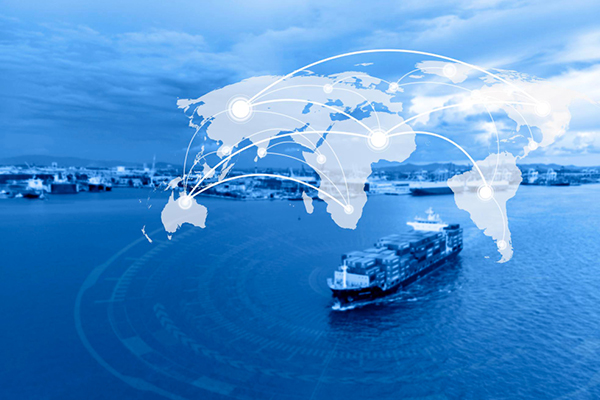
DIGITALIZATION IN SHIPPING INDUSTRY
Digital technologies and solutions are gradually being adapted to increase competitiveness and enhance operational efficiency.
The potential of Artificial intelligence (AI), data analytics, automation, blockchain, machine learning are combined to connect and smoothen communication, shipping lines, freight forwarders, port authorities, end customers, etc. This can have many benefits such as analysing real time and accurate information for better decision making, automatize information sharing, prevent cybersecurity risks, etc.
The following steps can be done for digital adaptation:
- IT and System integration
- Increased network and connectivity
- Automation, Remote monitoring and control
- Data Management and Cyber security
- Data Collection (Sharing and Analysis)
- Data Standardization (Protocol)
Although there has been some progress, the shipping industry still has various challenges to take up. This includes barriers related to the organization, technologies and external environment.
Therefore, while adapting digital ways, one can face the following barriers:
- Find qualified labour force to fulfil the requirements resulting from new technologies.
- Align the digital strategy and business strategy in Organizations
- Enact adequate regulations
- Encourage investments and initiatives
- Reduce implementation costs
- Increase the quality of offshore internet connections.
In the coming years, demand for import and export, driven by e-commerce will increase. Everyone in the shipping industry have to get ready to meet constantly changing requirements. It is essential for everybody to act digital in day-to-day tasks. Eventually the innovations will be leveraged to create value for the shipping operators and lead to significant increase in the economics of the business.
Categories
Recent Post
-
Navigating Global Trade with Confidence: Why International Sea Freight Services Matter
-
Reliable and Scalable Transport Services in India
-
Streamline Your Global Shipping with Expert Sea Freight Forwarding Services!
-
Experience the Advantage of Comprehensive Global Air Freight Services.
-
Seamless Warehousing & Logistics Services That Power Your Supply Chain

